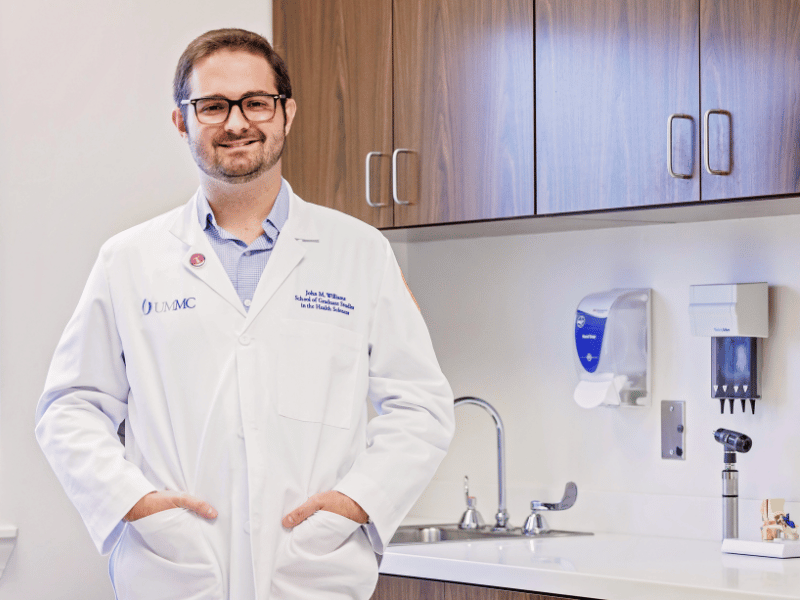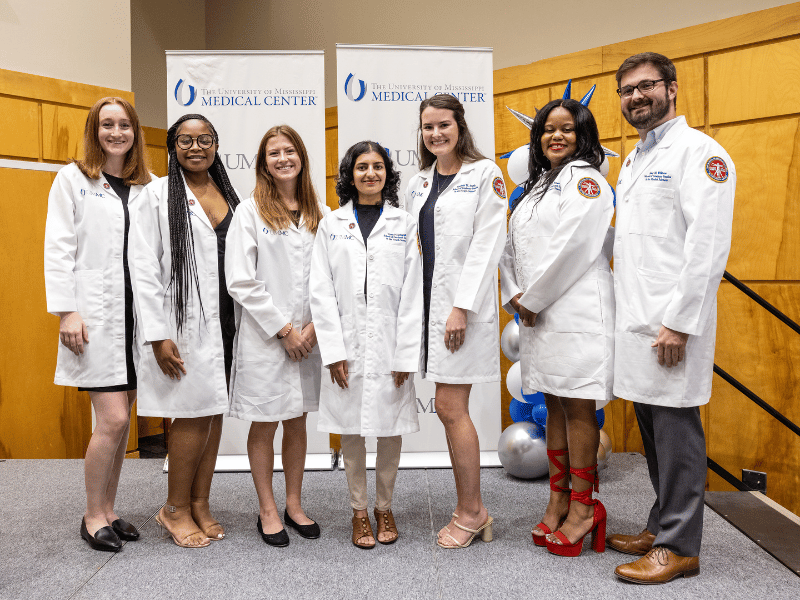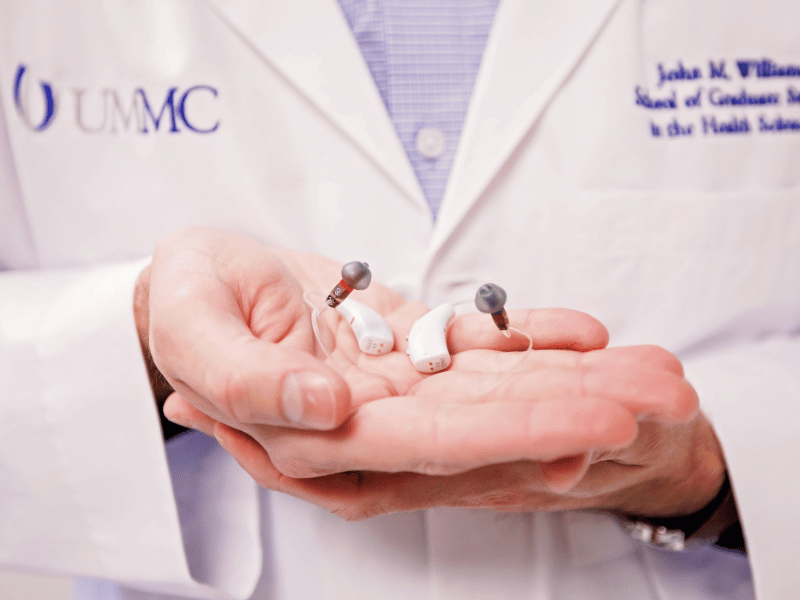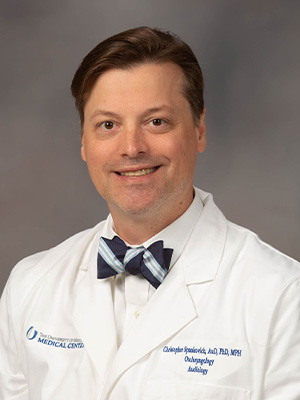Audiology student relishes ‘full circle’ moment after childhood hearing loss

You wouldn’t know it by looking at him now, but John Williams was not always a fan of his hearing aids. Before getting his first pair in fourth grade, he had learned to compensate for his hearing loss and didn’t think he needed them.
“He hated the hearing aids,” his mother, Ramona Williams, said. “Many tears were shed by him and me. He eventually realized they did help him in school, so it became easier for him to wear them. He also developed into a young man who didn’t care what other students said.”
“I think that started his desire to help young children with hearing loss.”
Now 28 – he turns 29 this week – Williams is enrolled in the inaugural class of the doctor of audiology program in the School of Graduate Studies in the Health Sciences at the University of Mississippi Medical Center, where he was fitted for his first pair of hearing aids 19 years ago.

The diagnosis was bilateral sensorineural hearing loss – hearing loss in both ears. Though he has some residual hearing, it’s difficult to understand speech.
“I always tell people that, without hearing aids, speech kind of sounds like the adults on the ‘Peanuts’ cartoons.”
He remembers struggling socially in elementary school. Like the times a classmate would whisper in his ear, and he’d laugh along, pretending he was in on the joke, when he had no clue what was going on.
“Constantly being left out can be very frustrating, which easily leads to socially withdrawing altogether.
“On the flip side, though, I overcompensated in some positive ways. I developed a strong work ethic academically and learned how to set high standards for myself. I also became good at nonverbal communication—things like facial expressions, eye movements, inflection and shoulder tension sometimes say just as much as words.”
First diagnosed with mild hearing loss in kindergarten, Williams wasn’t fitted for hearing aids until he was 9, when he started to struggle academically.

“Technologically, hearing aids have really come a long way since my first pair,” he said. “My current pair have rechargeable batteries and Bluetooth® capabilities, so I can directly stream music and take phone calls.”
A full-circle moment is how Williams, a native of McLain, describes his admission to the AuD program. He had toyed with the idea of going into audiology in the past, but most other programs required a degree akin to communicative disorders. His undergraduate degree was in biology.
In August, he graduated with a degree in population health sciences from the John D. Bower School of Population Health. He’d thought he was destined for a career in research.
“I absolutely love research,” said Williams, who now calls Flowood home. “I thoroughly enjoyed my time in the School of Population Health. To say I learned a lot is an understatement.
“Gaining knowledge through research is important, obviously, but it’s what we do with that knowledge, how we apply it to policy or practice, that really makes a difference.”
Last fall, he co-authored a manuscript about reframing the health care system for patients with hearing loss.
“That experience, I think, was the turning point for me. I clearly saw that patients with hearing loss are so much more than a statistic on a page. These are people with stories and lived experiences. I realized that I wanted to be a part of their stories and work more closely with this population in a clinical capacity.”
A few months later, he found out about UMMC’s new AuD program.
“The decision to apply was honestly a no-brainer,” he said. “I guess you could say that my pursuing an audiology degree was inevitable.”

Providers with experience as patients in their field often do well in establishing trust and interacting with their patients, said Dr. Christopher Spankovich, director of the AuD program, which has seven students in its inaugural class.
Hearing loss is one of the most common birth disorders, impacting roughly 3 of every 1,000 children; 15 percent of adults 18 and older report some trouble hearing.
In older adults, hearing disorders have other implications.
“Hearing loss and balance disorders are two of the top chronic health conditions among older adults, and hearing loss is one of the strongest modifiable risk factors for cognitive decline with age,” said Spankovich. “With less than 15,000 audiologists in the United States, there is significant need for providers to address this often overlooked but growing population.
“I think John has a high level of potential to serve the hearing loss and balance disorder community.”
A decade or so down the road, Williams would like to be on faculty at an academic medical center, seeing patients, researching, teaching and mentoring audiology students.
His mother believes he is where he’s supposed to be.
“I think this may have been God’s plan all along,” she said. “Who better to help children with hearing loss than someone who has experienced the same struggles? Sometimes God prepares us in ways we don’t understand to become the person we were meant to be.”


